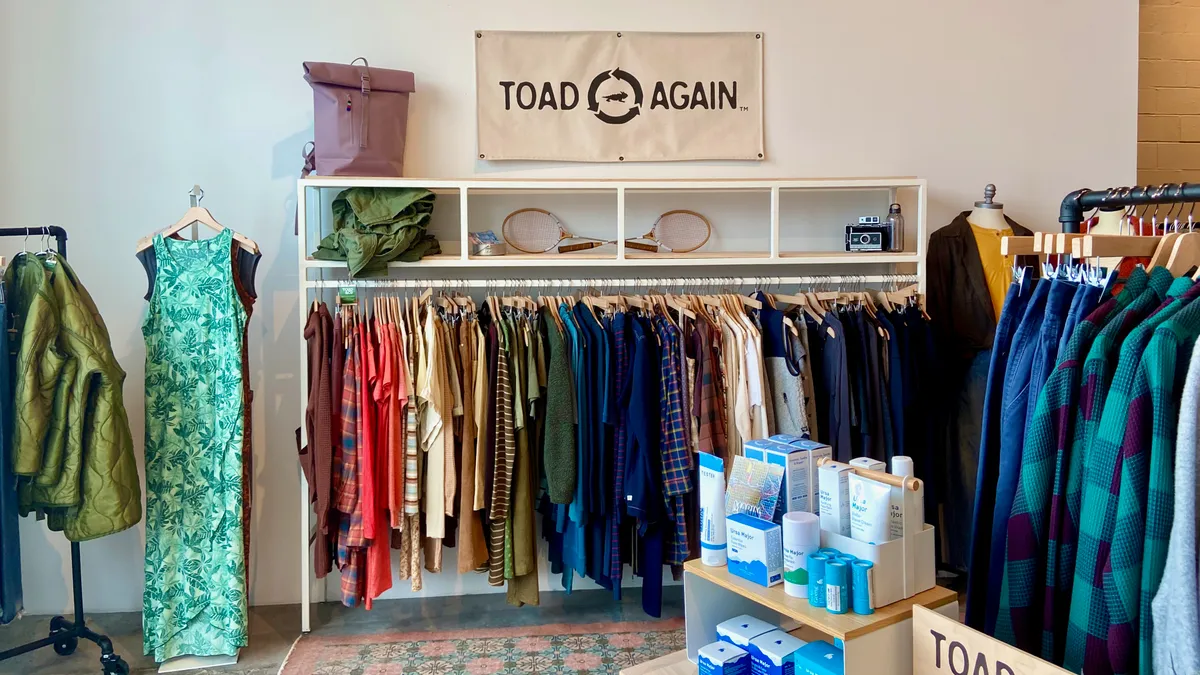Apparel company Toad & Co. sells almost entirely via wholesale and direct-to-consumer e-commerce, and now is defying the odds in resale.
There's convincing evidence that the only profitable way to sell secondhand goods is through brick and mortar. But the company’s fast-growing “Toad Again” resale effort, run mostly online since April, is making money so far.
Toad is making like the tortoise, taking it slow and steady, and controlling its own secondhand operations. Founded 28 years ago in Telluride, Colorado, as Horny Toad, Toad & Co. is known for its earth-toned sustainable clothing. Before the pandemic, wholesale to retailers like REI, Title 9 and specialty retailers accounted for about 80% of its revenue, but that has fallen markedly in the last few years, according to Sam Cuccaro, operations manager for the company’s two locations in Maine; there is also one each in Golden, Colorado, and Chicago.
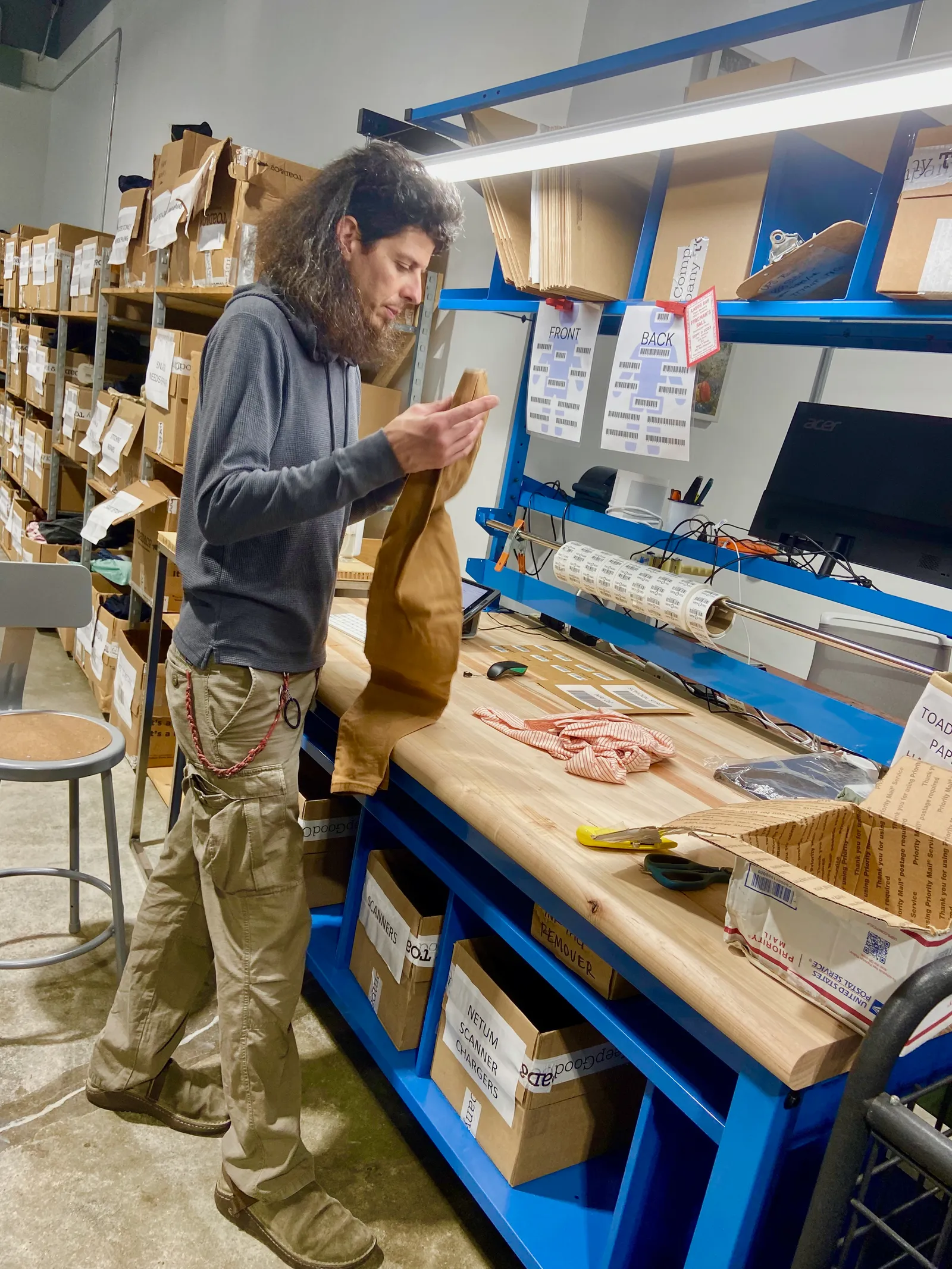
The first Maine store is 6,000 square feet of retail space in Freeport, a small-town shopping mecca anchored by L.L. Bean’s flagship. The Portland location, which opened in May in an industrial area known for its brew pubs, is closer to 9,000 feet. But the retail square footage there is smaller because the vast majority of space is being used to process incoming used items and fulfill resale orders.
Toad & Co. got its start in resale by selling vintage finds, usually from other brands like Levi’s, at its Freeport store. They sold quickly, and once the store expanded its offer with preowned Toad & Co. items, those sales “blew up,” Cuccaro said, speaking at the Portland location. Since April, sales of used goods, which now occurs mostly through a dedicated “preloved” page on the brand’s website, have risen an average 113% each month, and are proving to be a profit center.
“If you claim to be a sustainable brand, you have to be thinking about resale or already doing it,” she said.
Indeed, Toad & Co. is not alone. With sales of secondhand clothing skyrocketing — in the U.S. alone the market reached $39 billion last year and is set to rise to $70 billion in four years, according to GlobalData and resale company ThredUp — brands of all sizes, across the value spectrum, are scrambling to join in. As Cuccaro notes, many consumers view buying secondhand as a sustainable way to shop, an option that keeps discarded clothing out of landfills and perhaps tamps down demand for new production. Brands from H&M to Lululemon join Toad & Co. in touting their resale programs as key to their sustainability goals.
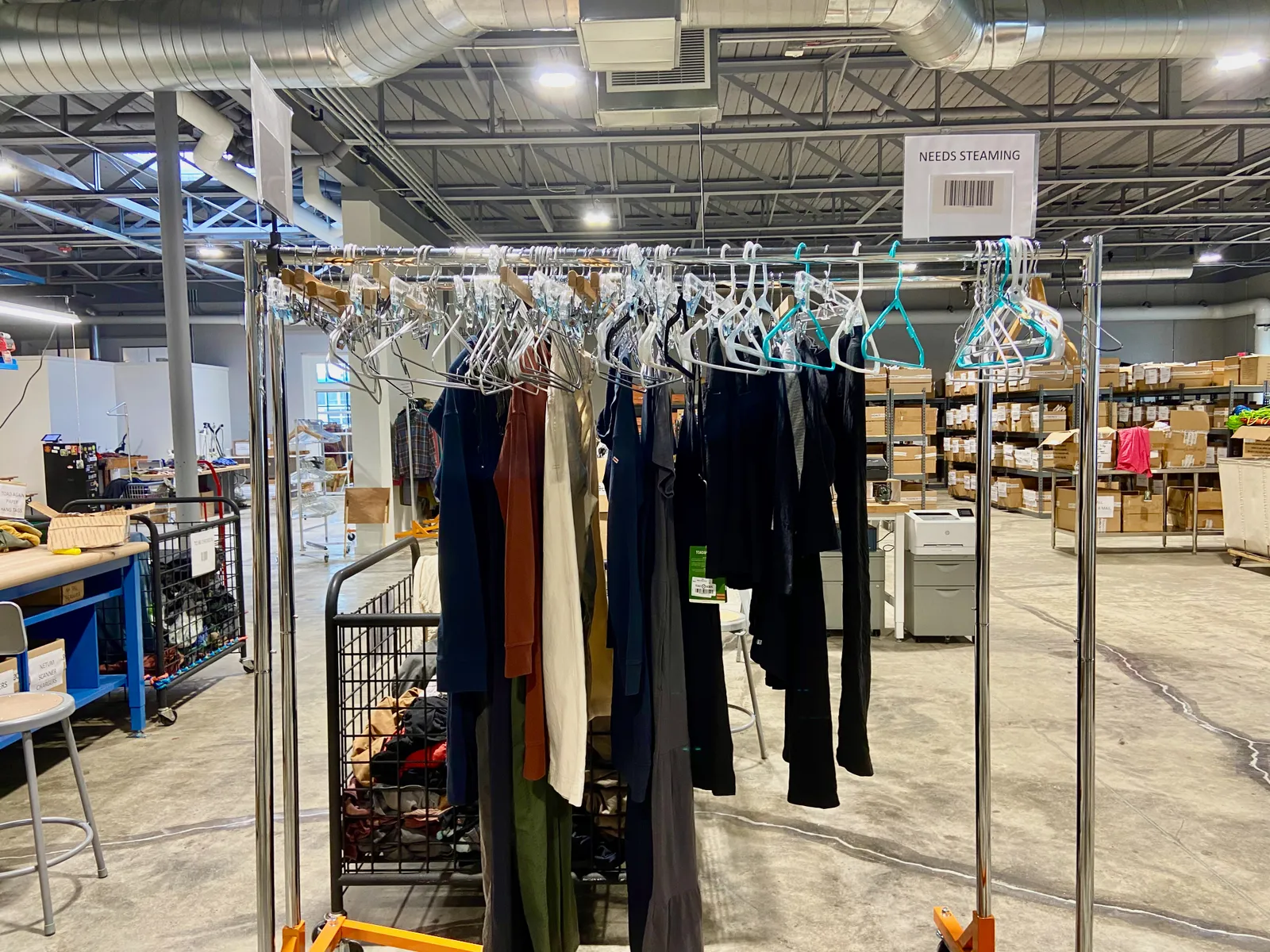
So far, though, in order to participate in this growing opportunity, most brands have limited sales of used items to e-commerce, partnering with third-party platforms that provide technology and much of the logistics. For Toad & Co., which has so few stores and depends on e-commerce to begin with, selling used items online was also a given. But unlike brands that outsource their resale to firms like ThredUp and Trove, it controls that operation itself.
The company has partnered with resale tech firm Archive to provide the platform — a dedicated resale page that includes a peer-to-peer sales option, forms that potential sellers must complete, payment options and pricing, among other digital necessities. But the receiving, screening, sorting, repair and fulfillment of used items are all completed in the backroom of the Portland location. The brand has created a high standard for anything that’s resold, rejecting even slightly blemished or unwashed items. Though it still sells vintage finds at physical stores, the company takes only its own brand for Toad Again, even prohibiting anything from its Horny Toad era. (The company changed its name in 2015.)
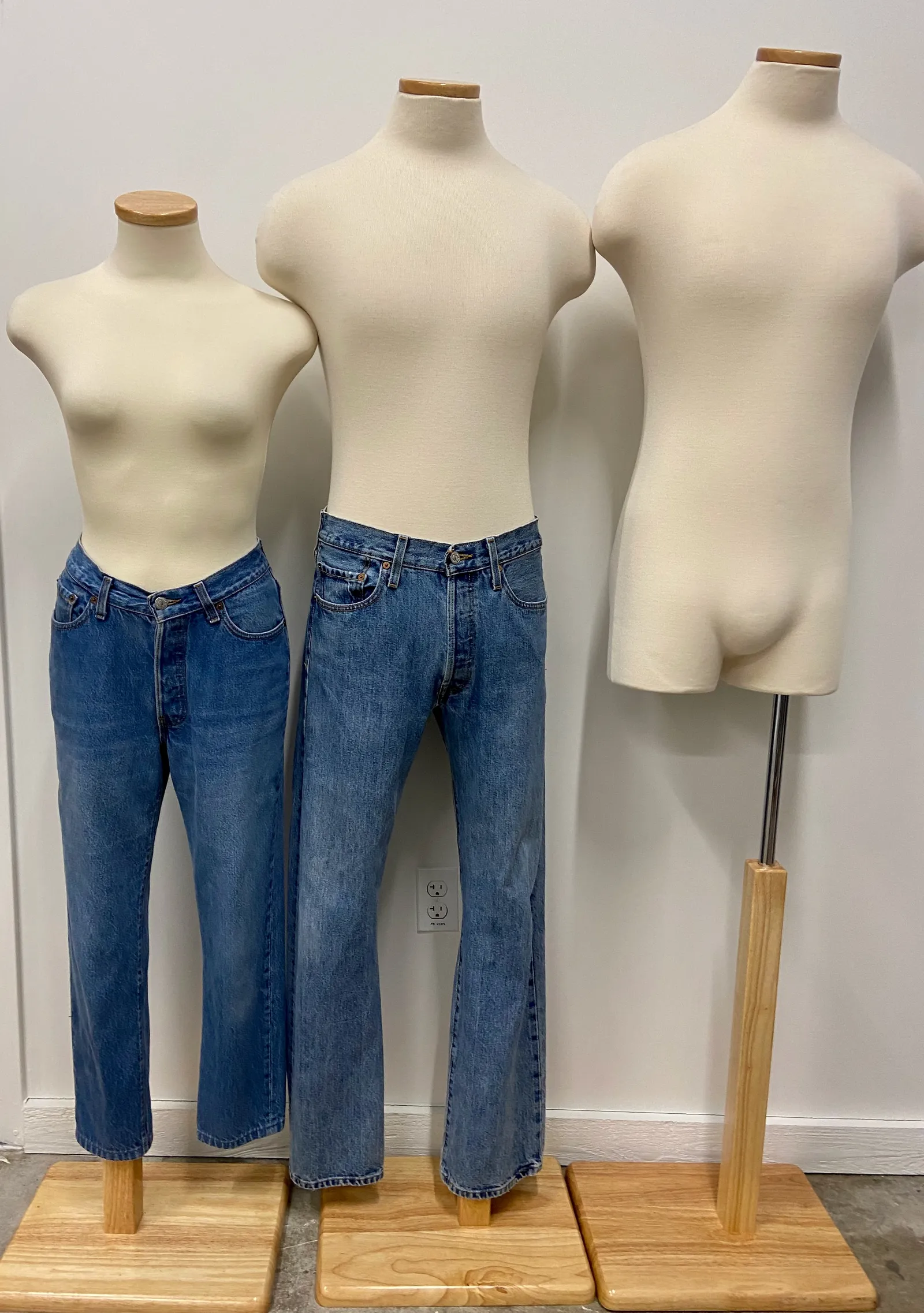
Anything unsatisfactory for resale is scrutinized for potential upcycling — Operations Technician James Fargnoli says the brand’s high quality fabrics allow for that — or donated. Acceptable items either go to the store floor or are photographed and listed online. Sellers are required to note the item number, so the company can locate the original studio photography from when it was sold new, then add current photographs to show its present condition.
Anyone interested in participating in Toad Again can opt for a peer-to-peer model, where they list the items on the Toad Again web page and fulfill any orders with a prepaid shipping label; Toad & Co. takes a 10% cut. For items collected by Toad & Co, sellers can opt for cash or a bit more in store credit, though they receive nothing and lose the garment if Toad & Co. rejects it. The company is also working on an auction feature.
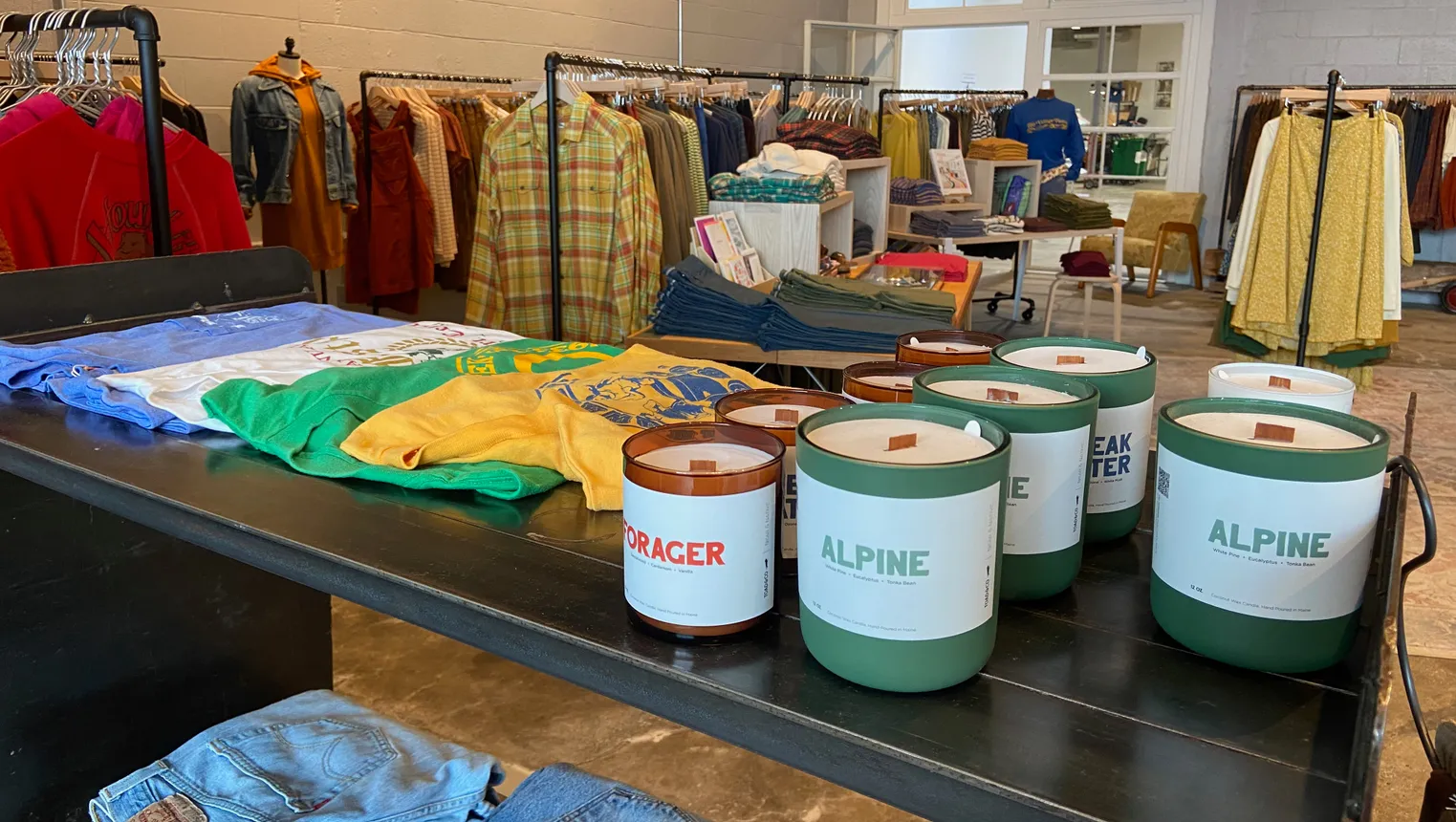
The effort is fairly new, and it remains to be seen if its Maine-based processing and fulfillment can keep up with what is a swiftly expanding business. According to Cuccaro, its explosive growth is bound to persist, considering the popularity of resale in general and Toad & Co.’s dedicated following.
“It’s a treasure hunt that customers love,” Cuccaro said. “And Toad & Co. has really loyal fans.”



